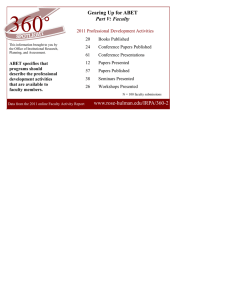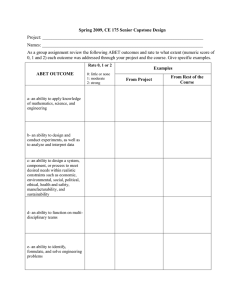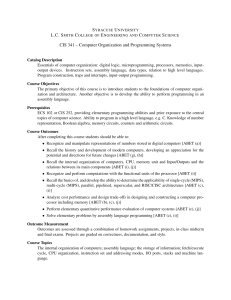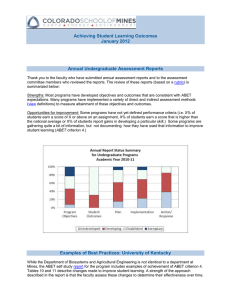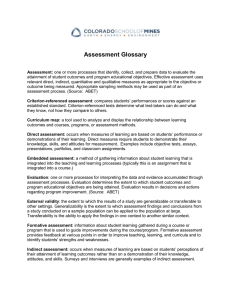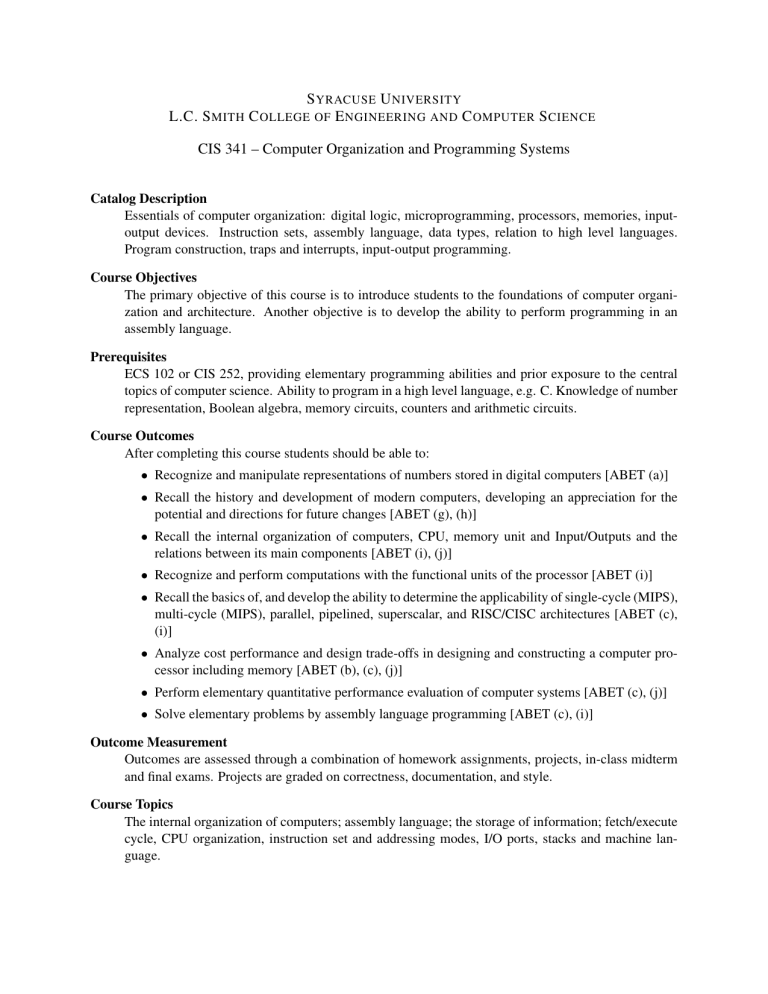
S YRACUSE U NIVERSITY L.C. S MITH C OLLEGE OF E NGINEERING AND C OMPUTER S CIENCE CIS 341 – Computer Organization and Programming Systems Catalog Description Essentials of computer organization: digital logic, microprogramming, processors, memories, inputoutput devices. Instruction sets, assembly language, data types, relation to high level languages. Program construction, traps and interrupts, input-output programming. Course Objectives The primary objective of this course is to introduce students to the foundations of computer organization and architecture. Another objective is to develop the ability to perform programming in an assembly language. Prerequisites ECS 102 or CIS 252, providing elementary programming abilities and prior exposure to the central topics of computer science. Ability to program in a high level language, e.g. C. Knowledge of number representation, Boolean algebra, memory circuits, counters and arithmetic circuits. Course Outcomes After completing this course students should be able to: • Recognize and manipulate representations of numbers stored in digital computers [ABET (a)] • Recall the history and development of modern computers, developing an appreciation for the potential and directions for future changes [ABET (g), (h)] • Recall the internal organization of computers, CPU, memory unit and Input/Outputs and the relations between its main components [ABET (i), (j)] • Recognize and perform computations with the functional units of the processor [ABET (i)] • Recall the basics of, and develop the ability to determine the applicability of single-cycle (MIPS), multi-cycle (MIPS), parallel, pipelined, superscalar, and RISC/CISC architectures [ABET (c), (i)] • Analyze cost performance and design trade-offs in designing and constructing a computer processor including memory [ABET (b), (c), (j)] • Perform elementary quantitative performance evaluation of computer systems [ABET (c), (j)] • Solve elementary problems by assembly language programming [ABET (c), (i)] Outcome Measurement Outcomes are assessed through a combination of homework assignments, projects, in-class midterm and final exams. Projects are graded on correctness, documentation, and style. Course Topics The internal organization of computers; assembly language; the storage of information; fetch/execute cycle, CPU organization, instruction set and addressing modes, I/O ports, stacks and machine language. CAC Category Content 0 Data Structures 0.5 Algorithms 0 Software Design 2 Computer Organization & Architecture 0.5 Programming Languages
